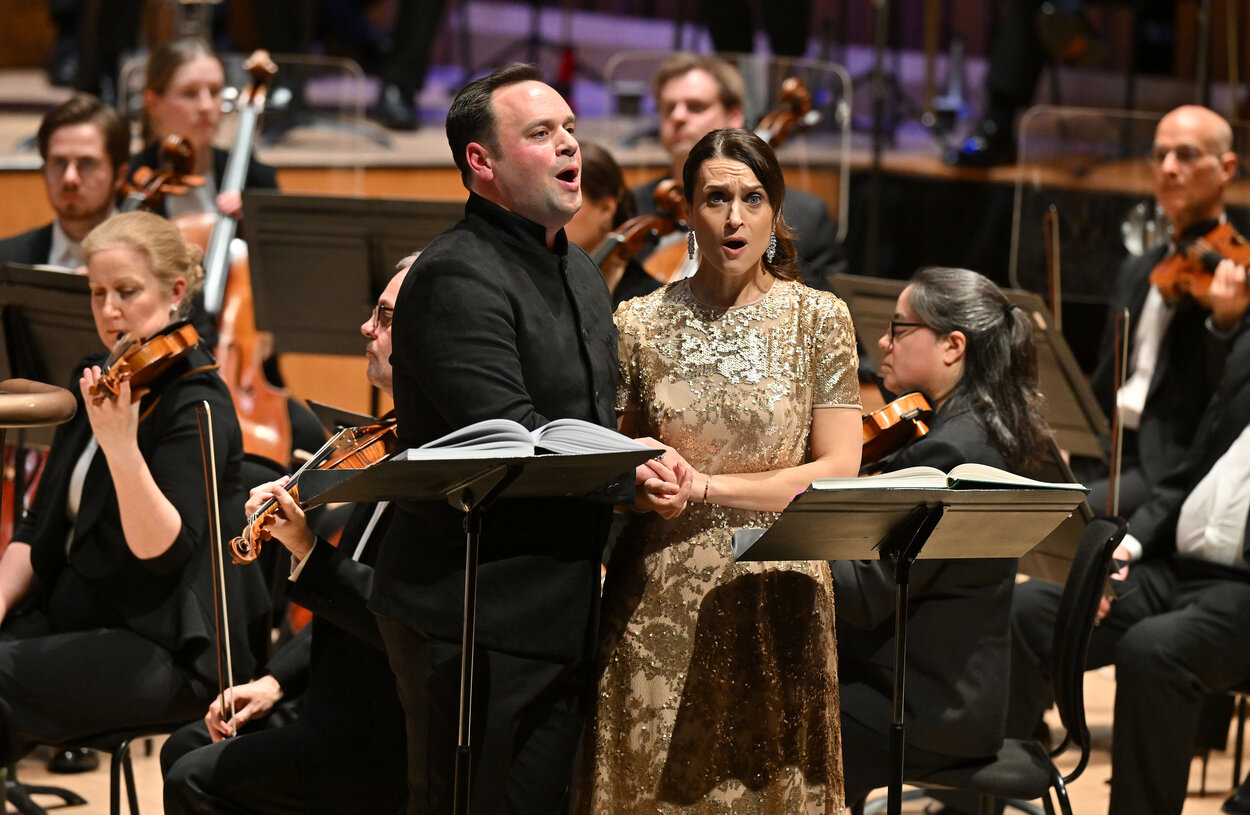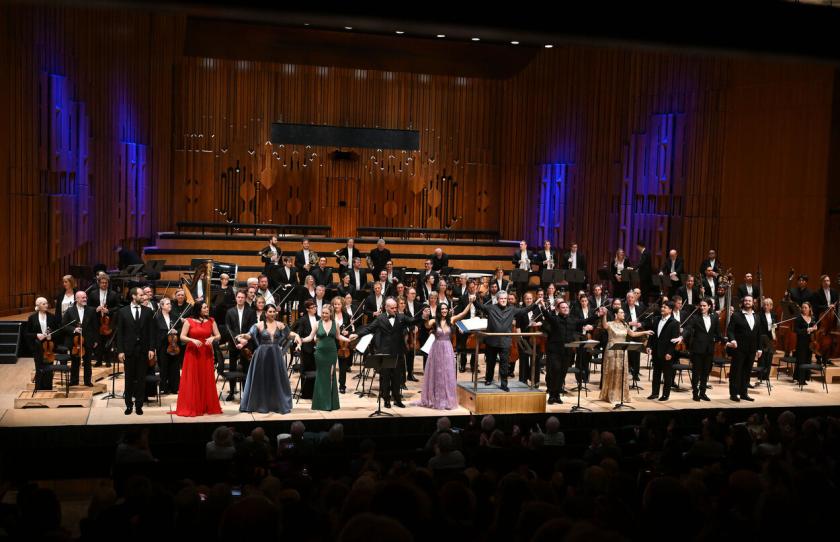There are no battlement leaps or murderous vows, no pistols or daggers, not so much as a slight cough disturbs the serene plot of La rondine – the Puccini opera once labelled a “poor man’s Traviata”.
And yet it’s all the better for it. This is a voluptuous femme fatale of a score dressed up in a shy smile and a coy over-the-shoulder glance of a plot: pure musical emotion in search of a dramatic outlet. No wonder Merchant and Ivory found the soundtrack for A Room With A View’s unspoken yearnings and repressed passions in its “Chi il bel sogno di Doretta”.
If repression is in Antonio Pappano’s musical vocabulary it wasn’t much in evidence in the first of the London Symphony Orchestra’s two concert performances of the opera this week – a sideways glance at the Puccini 100 anniversary that leaves the LSO music director’s former colleagues at Covent Garden in unchallenged possession of the Bohémes and Toscas. The City of Lights traded gas lamps for LEDs in a brilliant flash of an orchestral opening, surging through an LSO swollen with brass and percussion, squeezing the cast into a mere sliver of remaining stage space. What delight to hear this score in the concert hall – the woodwind lines weaving and layering with such clarity, the strings blended into an Impressionist’s hazy skyscape, the brass with such unabashed power. This was the LSO’s show from start to finish, a battle-cry for an underrated score, following Pappano into every swelling rubato and throbbing appassionato, even an Act II finale of dangerous momentum and pace.
The City of Lights traded gas lamps for LEDs in a brilliant flash of an orchestral opening, surging through an LSO swollen with brass and percussion, squeezing the cast into a mere sliver of remaining stage space. What delight to hear this score in the concert hall – the woodwind lines weaving and layering with such clarity, the strings blended into an Impressionist’s hazy skyscape, the brass with such unabashed power. This was the LSO’s show from start to finish, a battle-cry for an underrated score, following Pappano into every swelling rubato and throbbing appassionato, even an Act II finale of dangerous momentum and pace.
All of which risked leaving the singers in second place, decorating the orchestra’s musical drama rather than driving it. A late cast change saw soprano Nadine Sierra (a glamorous musical presence at the reopening of Notre Dame earlier this week) replaced by Carolina López Moreno (pictured below with Michael Fabiano) as an unusually youthful Magda the “swallow” of the opera’s title. Vivacious and dramatically committed, López Moreno seemed at odds with her Ruggero (Michael Fabiano) as to whether this was a semi-staging or a straight concert performance. Her theatricality chafed against his score-bound reserve, romantic chemistry the chief casualty.
 Musically both started a little ill at ease, Fabiano tight at the top of his “Parigi! E la città dei desideri”, struggling audibly through the end of “Bevo al tuo fresco sorriso”, but rallying for a fine Act III, culminating in some of the best singing of the night for duet “Ma come puoi lasciarmi”. López Moreno’s sweet-toned heroine struggled against the power of the onstage band, soaring above the stave (if sometimes sacrificing control for expressive attack) but often lost lower down. It was a similar story with Paul Appleby’s Prunier, his backbiting snobbery landing more effectively than his lyrical moments.
Musically both started a little ill at ease, Fabiano tight at the top of his “Parigi! E la città dei desideri”, struggling audibly through the end of “Bevo al tuo fresco sorriso”, but rallying for a fine Act III, culminating in some of the best singing of the night for duet “Ma come puoi lasciarmi”. López Moreno’s sweet-toned heroine struggled against the power of the onstage band, soaring above the stave (if sometimes sacrificing control for expressive attack) but often lost lower down. It was a similar story with Paul Appleby’s Prunier, his backbiting snobbery landing more effectively than his lyrical moments.
Piercing through anything Pappano could throw at her by sheer force of personality, Serena Gamberoni’s Lisette (pictured below with Paul Appleby) caught the lively spirit of Puccini’s almost-operetta, sending the action diving from comedy to conflict within every phrase. Ashley Riches made all possible theatrical hay from Magda’s straw-man protector Rambaldo, and there was sparky work from Sarah Dufresne, Angela Schisano and Marvic Monreal as the trio of party guests. Puccini’s Swallow is an elusive bird, darting between musical and dramatic worlds without ever properly alighting. An Italian opera with a faint Austrian accent, a comedy with a tragic ending, a love story in which everybody parts, it’s a trick no one else could pull off. If this is a poor man’s Traviata then sign me up, because frugality has never sounded so rich.
Puccini’s Swallow is an elusive bird, darting between musical and dramatic worlds without ever properly alighting. An Italian opera with a faint Austrian accent, a comedy with a tragic ending, a love story in which everybody parts, it’s a trick no one else could pull off. If this is a poor man’s Traviata then sign me up, because frugality has never sounded so rich.














Add comment